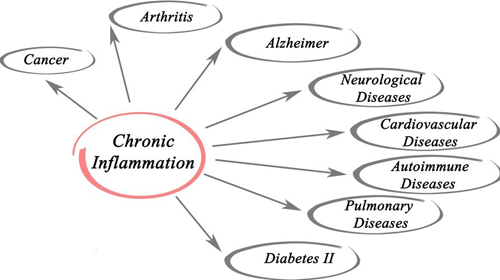This blog is the 1st of a 2-part series that will explain the main reason I recently changed how I eat. In August of last year, Marcia and I decided to dive into the Keto Diet. I know, I know another one of those fad diets. And yes, I know, I know I really didn’t need to lose weight. I turned 60 last December and although I am very healthy, I have become very aware of the fact that I want to continue to be for as long as I can. As long as I live right, then my personal genetic makeup should allow me to live into my 90s, at least. Another thing. The one question that has been pestering me for quite some time is this. What are we going to find out in 20 years that we should have been doing now?

Inflammation is a killer and insulin resistance is the culprit. Let’s dive in!
Insulin is a hormone produced by the pancreas so that sugar(glucose) from the food we eat can be used for energy. When there is too much glucose in the bloodstream it can cause an effect known as insulin resistance. (Bad) When insulin resistance occurs so does inflammation.
For decades insulin has been used as an anti-inflammatory agent. But if we become insulin resistance then inflammation can become chronic and become a silent killer.
Chronic inflammation has a role in many deadly diseases including cancer, heart disease, arthritis, diabetes. Arteries and organs breakdown even when low levels of inflammation are present which can lead to cancer and diabetes.
Cancer
Inflammatory cells produce free radicals that destroy genetic material, including DNA. This leads to mutations that cause cells to endlessly grow and divide. This then feeds the growth of tumors. An example of this is when too much stomach acid is produced – a result of the bodies immune system to fight foodborne bacteria. It creeps up the esophagus causing inflammation and chronic heartburn. Extended exposure to this acid changes the cells lining of the esophagus, increasing the risk of cancer. “Losing weight can have a profound effect on lowering inflammation”, says Todd Brown, an endocrinologist who researches the link between bodily markers for inflammation and chronic diseases.
In colon cancer patients, communities of bacteria associated with diarrhea can create cancer with the help of inflammation. Cells protected by mucus can become inflamed when that mucus wall is breached by bacteria, says Cynthia Sears, a doctor who specializes in infectious disease research at Johns Hopkins. Once the bacteria gain a foothold then it creates more bacteria. As inflammation ramps up to fight it, so does the risk of cancer.
Heart Disease
Exactly how inflammation plays a role in heart attack and stroke remains a topic of ongoing research. It appears that the inciting event in many heart attacks and some forms of stroke is buildup of fatty, cholesterol-rich plaque in blood vessels. This combination of plaque and blood clots causes the majority of heart attacks and certain types of strokes.” says Deepak Bhatt Chief of Cardiology for the Boston VA Healthcare System. “Just like we’re targeting blood pressure, cholesterol and blood glucose, we also need to target inflammation”, says Erin Michos M.D. Associate Director of Preventive Cardiology for the Ciccarone Center. For short-term conditions, inflammation is helpful,” explains Michos. “But sustained low levels of inflammation irritate your blood vessels. Inflammation may promote the growth of plaques, loosen plaque in your arteries and trigger blood clots – the primary cause of heart attacks and strokes.” Michos adds that “The good news is that you can control inflammation.” Lifestyle choices like not smoking and increasing physical activity along with maintaining a healthy weight can reduce inflammation. Being overweight increases your risk of multiple diseases. But carrying excess fat around your belly is a red flag for heart disease risk. A type of fat that accumulates in the belly (visceral fat) secretes a molecule that causes inflammation.
Diabetes
Recent research has actually determined that high blood sugar numbers aren’t the only culprit in the development of diabetes. In order for excess glucose to damage the cells in your eyes, kidneys, fingers, and toes, inflammation must also be present. In the laboratory, researchers found that when glucose was forced into a cell there was no damage unless inflammation was present also. “You need inflammation in order for the glucose to do damage to cells,” explained Mary Ann Bauman, MD, a primary care internist and a spokesperson for the American Heart Association. She goes on to say, “that could be one of the reasons why in a diabetic if we can get them to exercise and lose weight, they will have less damage to their blood vessels.”
So this was what actually attracted me to trying the Keto way of eating. The idea of fighting the silent killer known as inflammation. I’ve been on it for 6 months and although there was quite a startling period of weight loss. (16lbs). I’ve gained almost all of that weight back. But now my eating habits are very different. And probably more healthy.
It has always been said that a lean body works far better than one that is not.
In the next part of this blog, I will outline exactly what I’ve been doing and what the effects have been and what I see myself doing in the future.